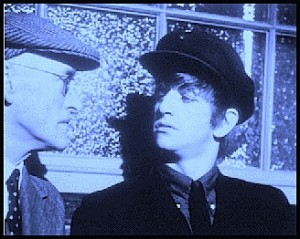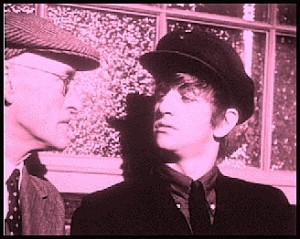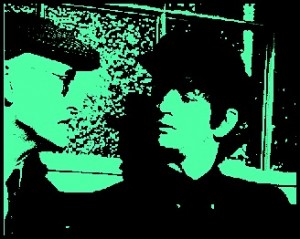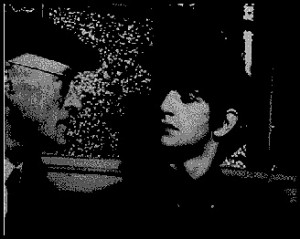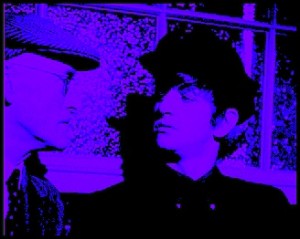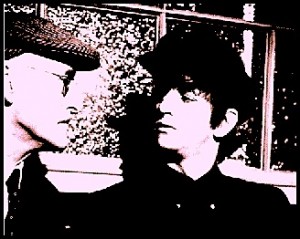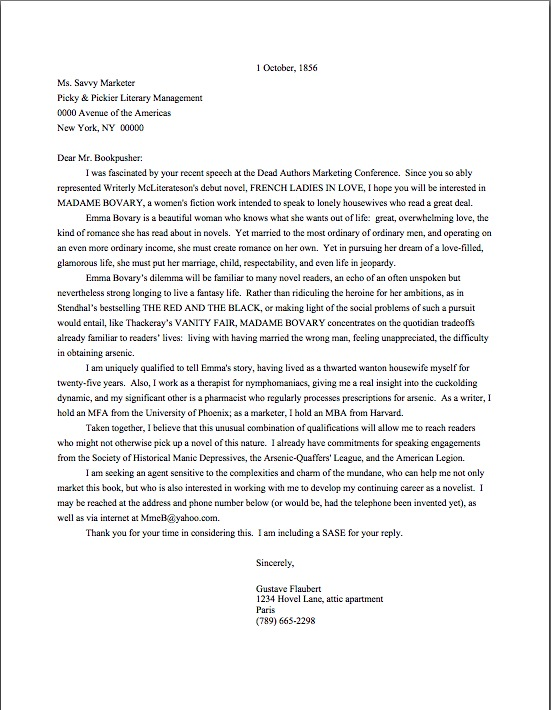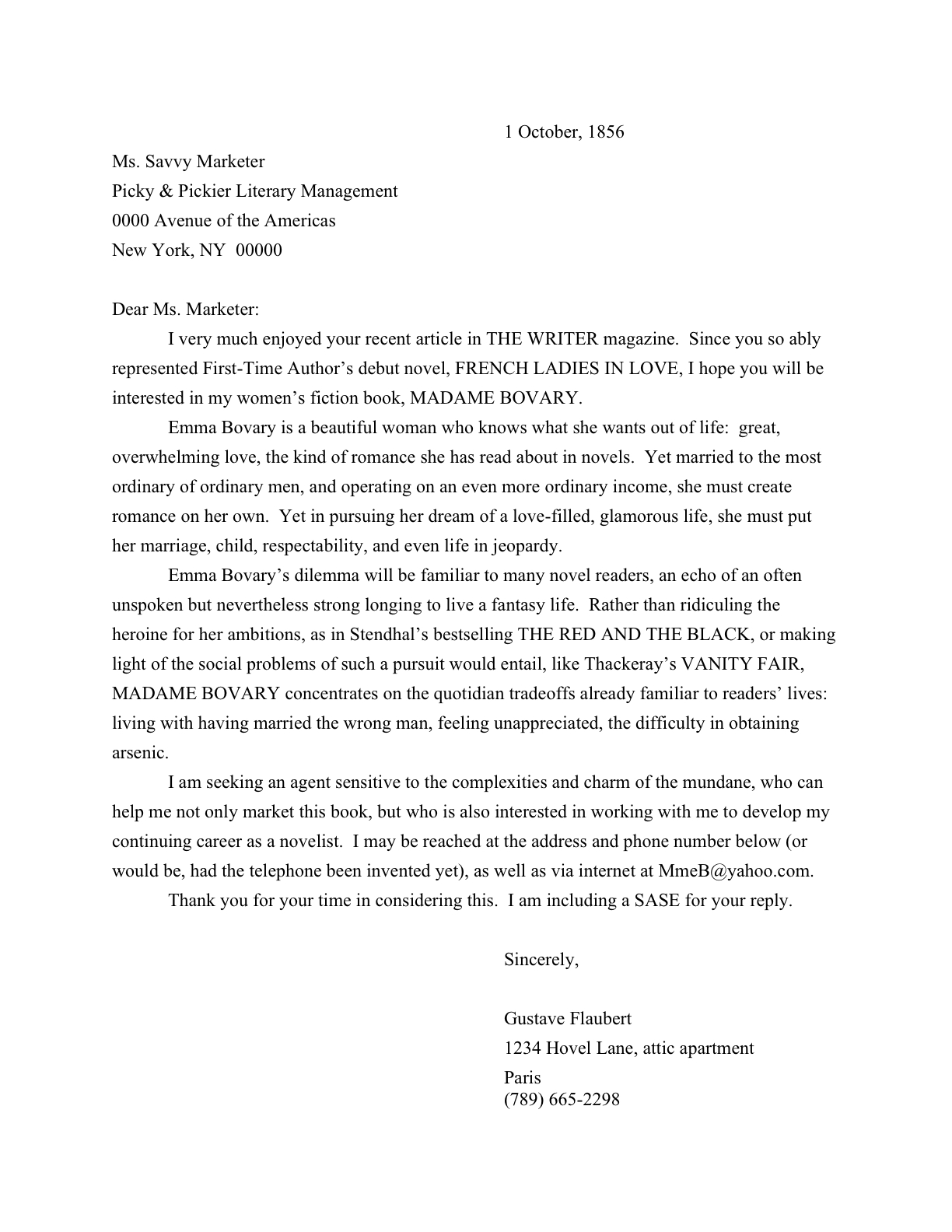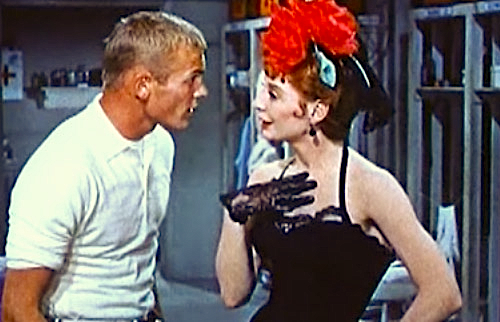
“A little brains, a little talent — with an emphasis on the latter.”
Last time, we embarked upon an in-depth discussion of that most-dreaded part of a good query letter, from most aspiring writers’ point of view: the section known as the platform paragraph. Why dreaded? Because the overwhelming majority of mistakenly hear a professional request for their book’s credentials as, “You have to prove to us that we should take you seriously as a writer, oh unpublished one, before we will deign to read your work.” Or as, “We only want to know this because we’re not interested in writers who don’t already have arm-length lists of published books.” Or even, “Who the heck do you think you are, believing you should write a book at all?”
Naturally, writers querying with their first manuscripts would find such expectations threatening. But if you have few or no previous publications, awards, writing degrees, etc. to your credit, do not panic, even for an instant. All of these are legitimate selling points for most books, there are plenty of other possible selling points for your manuscript.
How do I know that? Because the fine folks who work in agencies don’t actually expect the platform paragraph to answer any of the questions above. What questions do they want you to answer? “Why are you uniquely qualified to write this book, tell this story, and/or make this particular argument?”
Substantially less stressful to think of it that way, isn’t it?
Try not to get too bogged down in worrying about the standard prestige points. Today, we shall be going through a long list of potential selling points for your book. Pretty much everyone should be able to recognize at least a couple of possibilities that might fit the bill.
But I’m not going to be doing all of the work here. Dig out your trusty pad and pencil; you’re going to be coming up with a list of your book’s selling points.
And I’m not talking about mere vague assertions about why an editor at a publishing house would find your manuscript an excellent example of its species of book — that much is assumed, right? — but reasons that an actual real-world book customer might want to pluck that book from a shelf at Barnes & Noble and carry it up to the cash register. It may seem like a pain to generate such a list before you query, but believe me, it is hundreds of times easier to land an agent for a book if YOU know why readers will want to buy it.
Trust me, “But I spent three years writing it!” is not a reason that is going to fly very well with anyone in the publishing industry. Nor is the astonishingly common, “But I want to get published so much!”
Why won’t these excuses fly? Well, pretty much everyone who queries has expended scads of time, energy, and heart’s blood on his book. Contrary to what practically every movie involving a sports competition has implicitly told you, a writer’s wanting to win more than one’s competitors is not going to impress the people making decisions about who does and doesn’t get published.
I’m bringing this up advisedly. Sad to report, a disproportionately high percentage of queriers make the serious marketing mistake of giving into the impulse to talk about how HARD it was to write this particular book, how many agents have rejected it, at how many conferences they’ve pitched it, etc.
First-time pitchers are even more likely to tumble down this rabbit hole, alas. The more disastrously a pitch meeting is going, the more furiously many pitchers will insist, often with hot tears trembling in their eyes, that this book represents their life’s blood, and so — the implication runs — only the coldest-hearted of monsters would refuse them Their Big Chance. (For some extended examples of this particular species of pitching debacle, please see my earlier post on the subject.)
Sometimes, pitchers will get so carried away with the passion of describing their suffering that they will forget to pitch the book at all. (Yes, really.) And then they’re surprised when their outburst has precisely the opposite effect of what they intended: rather than sweeping the agent or editor off her feet by their intense love for this manuscript, all they’ve achieved is to convince the pro that these writers have a heck of a lot to learn how and why books get published.
In other words: “Next!”
Why is this an instant-rejection offense? Well, I hate to be the one to break it to these self-revealers, but this is not the way to gain an agency screener’s sympathy, or even her attention. In fact, such emotional outbursts are a waste of Millicent’s time.
Why? Well, you tell me: what, if anything, in a litany of complaints about how the publishing industry works, however well-justified, tells Millicent one single thing about the book being queried.
I’ll answer that one for you: nothing. But it does give her some indication of whether the querier has done any homework about how agencies work, or how books get published.
A writer who melts down the first time he has to talk about his book in a professional context generally sets off flashing neon lights in an agent’s mind: this client will be a heck of a lot of work. Once that thought is triggered, a pitch would have to be awfully good to wipe out that initial impression of time-consuming hyper-emotionalism.
The same holds true, of course, for queries. Sadly, queriers who play the emotion card often believe that it’s the best way to make a good impression. Rather than basing their pitch on their books’ legitimate selling points, they fall prey to what I like to call the Great Little League Fantasy: the philosophy so beloved of amateur coaches and those who make movies about them that decrees that all that’s necessary to win in an competitive situation is to believe in oneself.
Or one’s team. Or one’s horse in the Grand National, one’s car in the Big Race, or one’s case before the Supreme Court. You’ve gotta have heart, we’re all urged to believe, miles and miles and miles of heart.
Given the pervasiveness of this dubious philosophy, you can hardly blame the writers who embrace it. They believe, apparently, that querying (or pitching) is all about demonstrating just how much their hearts are in their work. Yet as charming as that may be (or pathetic, depending upon the number of teardrops staining the letter), this approach typically does not work. In fact, what it generally produces is profound embarrassment in both listener and pitcher.
Which is why, counterintuitively, figuring out who will want to read your book and why IS partially about heart: preventing yours from getting broken into 17 million pieces while trying to find a home for your work.
Aspiring writers’ hearts are notoriously brittle. Why else would anyone query only once, or twice, or a small handful of times, then give up altogether, assuming (wrongly) that if his book were really meant to get published, it would have been snapped up instantly?
The common misconception that good writing will inevitably and immediately attract an agent, regardless of how unprofessionally it is presented, can be even more damaging at query-writing time: when believers in the Agent-Matching Fairy sit down to write their queries, they often become depressed at the very notion of having to make the case that their manuscripts are worth reading. Frequently, these poor souls mistake the need to market their books for critique, hearing the fairly straightforward question, “So, why would someone want to read this book?” as “Why on earth would ANYONE want to read YOUR book? It hasn’t a prayer!”
Faced with what they perceive to be scathing criticism, many writers shrink away from this perfectly reasonable question. So much so that they become positively terrified of querying at all. “They’re all so mean,” such writers say, firmly keeping their work out of the public eye. “It’s just not worth it.”
This response makes me sad, because the only book that hasn’t a prayer of being published is the one that sits in a drawer, unqueried. There are niche markets for practically every taste, after all.
Did that little diatribe fill you with heart, miles and miles and miles of heart? Good. Let’s start generating your list of selling points.
Before I start making suggestions, let’s be clear on what you’re going to want on your list. A selling point should SHOW (not tell) why you are the best person to write this book, what about your book is likely to appeal to readers in your target market, and/or that the intended audience is larger (and, ideally, more interested in your subject matter) than Millicent might have been aware. To be most effective, you won’t want to make these arguments in a general, “Well, I think a lot of readers will like it,” sort of way, but by citing specific, fact-based REASONS that they will clamor to read it.
Preferably backed by the kind of verifiable statistics we discussed last time. Include any fact that will tend to boost confidence in your ability to write and market this book successfully — and that includes references to major bestsellers on similar topics, to show that there is already public interest in your subject matter.
Why? Because it will make your query look professional — and, I must say it, better than the 17 queries Millicent has already seen today that did not talk about their books in marketing terms. Not to mention that dear, pitiful person who whose entire query was devoted to how frustrating it is to try to find an agent for a cozy mystery these days.
Don’t skimp on the brainstorming stage; the more solid reasons you can give for believing that your book concept is marketable, the stronger your platform paragraph will be. Think about it: no agent is going to ask to see a manuscript purely because its author says it is well-written, any more than our old pal Millicent the agency screener would respond to a query that mentioned the author’s mother thought the book was the best thing she had ever read with a phone call demanding that the author overnight the whole thing to her.
“Good enough for your mom? Then it’s good enough for me!” is not, alas, a common sentiment in the industry. (But don’t tell Mom; she’ll be so disappointed.)
So on your marks, get set, go: why are you the best person in the universe to tell this story or make this argument, and why will people who are already buying books like yours want to read it?
Other than, obviously, the great beauty of the writing. Because absolutely the only way to demonstrate that to Millicent is by getting her to read your manuscript, right?
I already hear all of you literary fiction writers out there groaning — and we come to a stop again. “But Anne,” you protest in dulcet tones, “you astonish me. Surely, if any book category should be exempt from being marketed on anything but the beauty of the writing, it’s mine. I always thought that the primary benefit of writing fiction was that I wouldn’t ever have to sully my art with sordid marketing concerns. Yes, aspiring nonfiction writers have to produce book proposals, and thus are forced to brainstorm about marketing, but until fairly recently, fiction writers could concentrate on storytelling, craft, and, of course, lovely writing. I’ve been nervously watching as more and more, genre fiction writers are being expected to market their own work, but gosh darn it, I write for a relatively tiny target audience deeply devoted to beautiful writing. Please, please tell me that I can just leave the platform paragraph out of my query, and thus don’t have to let you drag me kicking and screaming toward the list below!”
Wow. Hadn’t I mentioned that emotional outbursts aren’t adequate substitutes for well-reasoned selling points?
Seriously, literary novelists, I think you’re missing the point here. No Millicent can possibly be bowled over by the beauty of your writing unless she reads it. And she will only read it if she is impressed by your query.
There’s just no way around that. So it behooves you not only to craft your descriptive paragraph to be as lyrical and moving as humanly possible, but also to use your platform paragraph to make your book sound different — and easier to market — than all of the other literary fiction books Millicent will see queried that day. It will cause your query to jump out of the stack at her: your tribe’s collective reluctance toward thinking about marketing virtually guarantees that if you do it well, your query will shine out as preeminently professional.
In other words: no, I shan’t absolve you of writing a platform paragraph. It’s just too likely to help you.
Where should a literary fiction writer start in coming up with selling points? Precisely where every other writer does: the subject matter. As I’ve said before and will doubtless say again, even the most abstruse literary fiction is about something other than just the writing. So ask yourself: why will the subject matter appeal to readers? How large is the book’s target demographic?
Or, if you prefer to put it in highbrow terms: if you were the publicity person assigned to promote the book, what would you tell the producer of an NPR show in order to convince him to book the author?
For fiction, the subject matter you choose as the focus of your platform paragraph need not be the central issue of the book, by the way. Even if your novel is about post-apocalyptic government restructuring, if a major character is the gardener charged with replanting the White House’s Rose Garden in newly-toxic soil, and you’ve been a landscaper for a decade, that’s relevant. (It informed what you chose to have that character plant, didn’t it?)
Some prompts to get you — and everybody else — brainstorming. Some effective selling points include…
(1) Experience that would tend to bolster your claim to be an expert on the subject matter of your book.
This is the crux of most nonfiction platforms, of course, but it’s worth considering for fiction, too. If you have spent years on activities relating to your topic, that is definitely a selling point. Some possible examples:
Marcello Mastroianni has been a student of Zen Buddhism for thirty-seven years, and brings a wealth of meditative experience to this book.
Clark Gable has been Atlanta’s leading florist for fifteen years, and is famous state-wide for his Scarlett O’Hara wedding bouquets.
Tammy Faye Baker originally came to public attention by performing in a show featuring sock puppets, so she is well identified in the public mind with puppetry.
(Actually, I think this last one is at least partially true. But I should probably state up front that otherwise, my examples will have no existence outside my pretty little head, and should accordingly remain unquoted forever after.)
(2) Educational credentials.
Another favorite from the platform hit parade. Even if your degrees do not relate directly to your topic, any degrees (earned or honorary), certificates, or years of study add to your credibility.
Yes, even if you are a novelist: a demonstrated ability to fulfill the requirements of an academic program is, from an agent or editor’s point of view, a pretty clear indicator that you can follow complex sets of directions. (Believe me, the usefulness of a writer’s ability to follow directions well will become abundantly apparent before the ink is dry on the agency contract: deadlines are often too tight for multiple drafts.) Some possible examples:
Audrey Hepburn holds an earned doctorate in particle physics from the University of Bonn, and thus is eminently qualified to write on atomic bombs.
Charlton Heston was granted an honorary degree in criminology from the University of Texas, in recognition of his important work in furthering gun usage.
Jane Russell completed a certificate program in neurosurgery at Bellevue Community College, and thus is well equipped to field questions on the subject.
(3) Honors.
If you have been recognized for your work (or volunteer efforts), this is the time to mention it. Finalist in a major contest, in this or any other year, anybody?
And it need not be recognition for your writing, either: the point here is to demonstrate that there are people (translation for Millicent: potential book-buyers) who already have positive associations with your name. Some possible examples:
Myrna Loy was named Teacher of the Year four years running by the schools of Peoria, Kansas.
Keanu Reeves won the Nobel Prize in Chemistry in 1990 for his research on THE MATRIX.
Fatty Arbuckle was named Citizen of the Year of Fairbanks, Alaska. As a result, newspapers in Fairbanks are demonstrably eager to run articles on his work.
(4) Your former publications and public speaking experience.
Yes, yes, I know: I spent most of this morning’s post convincing you that you needn’t despair if you had no previous publications. That doesn’t mean that I’m not going to urge those who do to bring them up in the platform paragraph — are you crazy? Millicent has a reverence for the published word the borders on the devout.
So if you have any previous publication whatsoever, list it, EVEN IF IT IS OFF-TOPIC. If your last book in another genre sold well, or if you were affiliated somehow with a book that sold well, mention it.
And please, don’t fall into the trap of thinking that only fiction credentials count if you’re pushing a novel, or that your published short story won’t help you get your memoir past Millicent: a publication is a publication is a publication. Some editor took a chance on you; Millie needs to know that in order to assess your query properly.
If you have ever done any public speaking, mention it, too: it makes you a better bet for book signings and interviews. If you have done a public reading of your work, definitely mention it, because very few first-time authors have any public reading experience at all.
Some possible examples:
Diana Ross writes a regular column on hair care for Sassy magazine.
Twiggy has published over 120 articles on a variety of topics, ranging from deforestation to the rise of hemlines.
Marcel Marceau has a wealth of public speaking experience. His lecture series, “Speak Up!” has drawn crowds for years on eight continents.
I’m going to hold off on the rest of the list until tomorrow morning, to give everyone a chance to digest both this and this morning’s gargantuan post before we move on. Get good sleep, everyone, and keep up the good work!

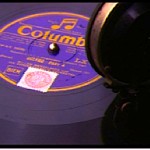 Realistically, every English sentence a writer looking to sell a book places under an agent or editor’s nose is a writing sample: the query, the synopsis, the bio, the book proposal. Every paragraph is yet another opportunity to show these people that you can write.
Realistically, every English sentence a writer looking to sell a book places under an agent or editor’s nose is a writing sample: the query, the synopsis, the bio, the book proposal. Every paragraph is yet another opportunity to show these people that you can write.
